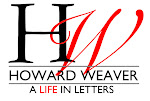Evolution, revolution
& hand grenadesDean Singleton, sitting just to my right on a panel discussing “the future of news” at the AP Sports Editors convention last month, served up a fat pitch I just couldn’t resist.
As he so often has, Dean illustrated his call for fundamental change
with the comment that, "We have to throw a hand grenade in the middle of the newsroom, blow the place up, and start over again." That gave me the opportunity to come out foursquare against murderous explosions aimed at our colleagues.
I don’t disagree about the imperative of fundamental change. I’ve been thinking about these issues since 1995, when I worked for Gary and had the somewhat grandiose title “assistant to the president for new media strategies.” We knew then and have become ever more urgently convinced that a digitally networked world changes everything.
Maybe Dean and others employ metaphors about hand grenades and revolutions simply to make the (correct) point that change is imperative. But I’m afraid they actually believe it, and that is dangerous and wrong.
The big mistake is assuming that fundamental change requires wrenching, violent revolution. Everything we know about life on earth tells us evolution is a better bet.
Revolutions generally (and hand grenades in particular) bring change indiscriminately. In rejecting the status quo, revolutionaries abandon institutions and disciplines that have evolved successfully after long testing and experimentation. These things usually became successful for a reason, and even if their time is past, the vacuum created by their absence isn’t likely to be pretty. Put it more simply: a revolution is far more likely to end up with the Reign of Terror than an Athenian Senate debate.
Critics say evolution is too slow and gradual to cope with rapid change. Not true.
While most people think of evolution as a sequence of minute changes iterated gradually over an unimaginably long time, it doesn’t usually work that way. As Stephen Jay Gould and others discovered, evolution is better understood as a process of
punctuated equilibrium, where the
equilibrium is long periods of stability and the
punctuation is relatively rapid change and adaptation when required. (Gould’s book
Wonderful Life, and especially his discussion of punctuated equilibrium in the Burgess Shale, is one of those books that changed the way I see the world).
In other words, evolutionarily successful organisms naturally carry on until conditions change, at which point they adapt pretty quickly to accommodate it.
Think newspapers.
There wasn’t a lot of imperative for newspapers to change when they had 80% reader penetration and 40% profit margins. Nestled securely in an evolutionary niche protected by geographic monopolies, exclusive classified advertising franchises and high barriers against competition, we ruled infoworld between WW2 to the internet.
Not now. The disruptive technologies born of digital networks have changed the climate, and the old order is no more. Change we must.
But our change will be more lasting and better constructed if we apply the time-tested lessons of evolution and eschew the flashier but less productive posture of revolution. As we apply lessons learned from the changing climate to adapt our sturdy, battle-hardened structures, we’ll end up with operations that meet changed conditions without abandoning valuable lessons from our past.
It’s hard for a hand grenade to make that kind of distinction.
I believe we’re smart enough and disciplined enough to pull this off – and with all you folks on the team, I’m ready to take on the hand grenade crowd any time, any place.
–Howard Weaver



